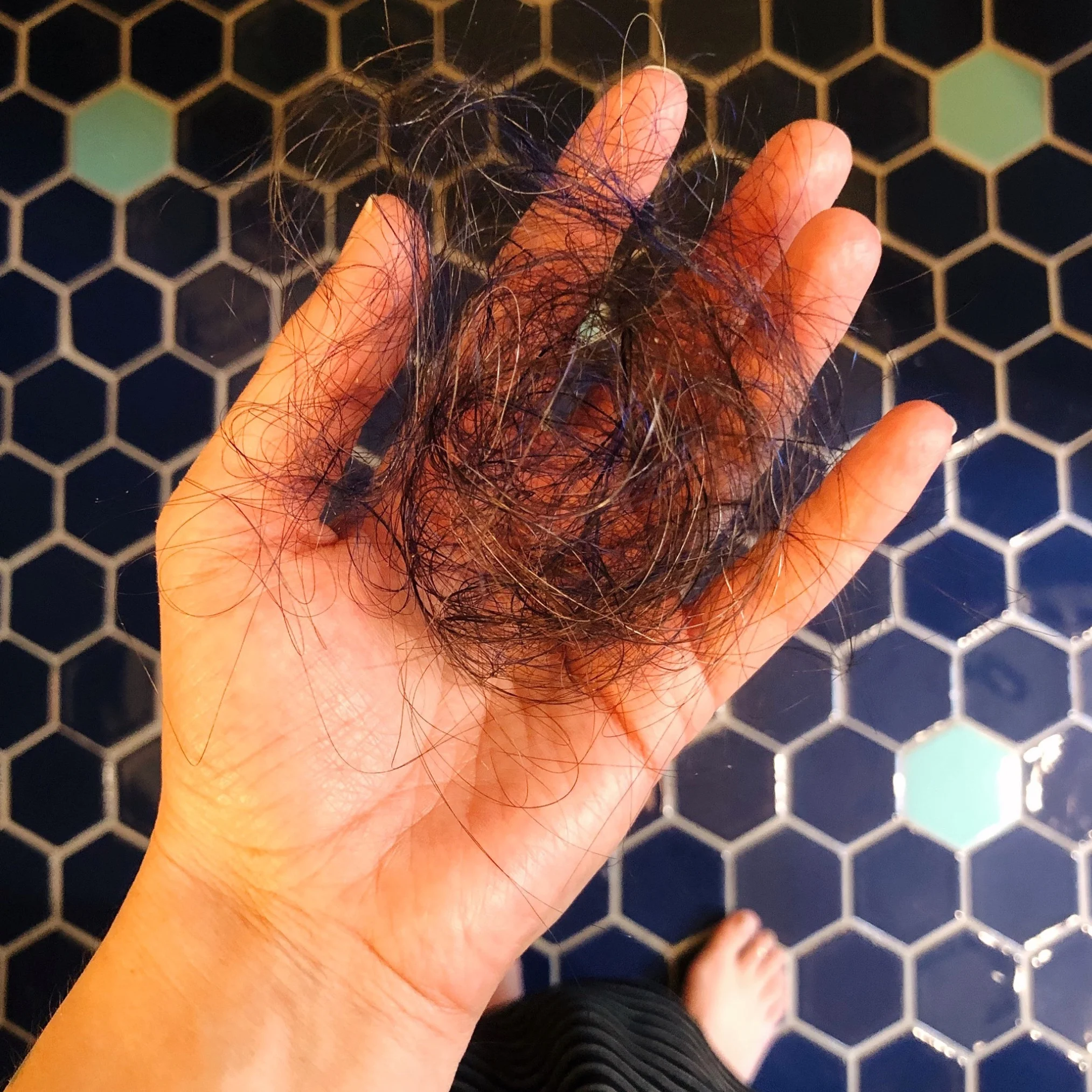Postpartum Hormones & Hair Loss
Pregnancy comes with a ton of “fun” little surprises thanks to fluctuating hormones, which can yield both, positive, and not-so-positive results. These hormones help our bodies morph and transform so that they can not only create and support life, but actually give birth and nurture that new life.
Let’s talk about postpartum hormones-
Progesterone
During pregnancy, progesterone is produced at a high rate. During this time, it relaxes ligaments, helps your uterus accommodate your growing baby, and counteracts common effects of another significantly increased hormone known as prolactin. However, progesterone drops off almost immediately after delivering the placenta while prolactin remains increased. Your ovaries will not start creating progesterone again until your first menstrual cycle, which may create a temporary imbalance.
Prolactin
You may know prolactin as the hormone mostly responsible for milk production, though its effects aren’t usually felt until after giving birth (when your increased progesterone, which counters the effects of elevated prolactin, sharply declines). What many don’t realize is that prolactin is also known to affect dopamine, which gives us feelings of euphoria and happiness. As a result, prolactin can sometimes be the reason behind moodiness, low energy levels, and slowed metabolism after your baby’s birth.
With all of these changes going on, it’s no wonder so many women experience the “baby blues” after giving birth - between the hormonal highs, lows, and everything in between, you are literally riding an emotional rollercoaster! Some women can even experience these changes for prolonged periods, from right before giving birth, all the way up to 12 months postpartum.
So, what does that mean for my body?
Well, one of the surprises is postpartum hair loss - but, relax, it’s not as bad as it sounds. On a typical day, the average person loses about 100 hairs a day, but it’s sporadic so you don’t really notice them (think about how many hairs have been left behind on the car seat). However, during pregnancy, your hormones tell your body that you need to keep these hairs. This is why so many woman claim that their hair was “at its best” during pregnancy - it’s super thick and luscious!
However, after pregnancy, those hormones start to drop, and once they near the “normal” zone again, those hairs will be dropping as well. Think of it as your body’s way of playing catch-up for all the hairs it would have lost, had you not been pregnant. It can be pretty startling to literally have hair coming out in tufts after a shower, but don’t fret - you’re not going to go bald, your body is just settling back to normal hormone levels!
We’ve all been there!
How long should I wait before I start to panic?
The hair loss can seem more extreme if your hair grew much more than normal during pregnancy, but most women will return to their usual hair growth cycle within six months, or between 6 and 12 months after birth. If you feel like your hair is still falling out frequently, or if something just doesn’t quite feel right by the 12 month mark, make an appointment to see your doctor just to be safe. It’s always a good idea to have your hormone levels checked if you’re experiencing prolonged postpartum effects.
Is there anything I can do about it?
Our bodies have an amazing ability to heal and repair themselves, so try to keep that in mind as you may have to let your hormones run their course. That said, a little self love never hurts! Many women continue to take their prenatal vitamins even after giving birth, and be sure to fuel your body with nourishing foods. You might try using a volumizing shampoo, with a conditioner formulated for finer hair - specifically shampoos with ingredients like tea tree oil, which act as an antibacterial, and the tingling revitalizes the scalp.
Essential oils can also be a nice addition to your daily routine - oils like rosemary and lavender are all great for scalp health. Find some time to soak in a warm bath, or even if you have to take a two minute shower, massage oils into the scalp and let them sit. Lavender essential oil is amazing for relaxation, so you can do this right before bed and (hopefully) get a decent night’s sleep - fingers crossed!
If you’re a new mom, or have any questions about the postpartum journey, I’d love to connect with you! You can always schedule a complimentary consultation HERE!
xoxo,
Lindsay

